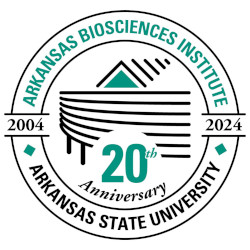Alternative pathways leading to ascorbate biosynthesis in plants: lessons from the last 25 years
Document Type
Article
Publication Title
Journal of Experimental Botany
Abstract
l-Ascorbic acid (AsA) is an antioxidant with important roles in plant stress physiology, growth, and development. AsA also plays an essential role in human health, preventing scurvy. Humans do not synthesize AsA, which needs to be supplied via a diet rich in fresh produce. Research efforts have provided progress in the elucidation of a complex metabolic network with at least four routes leading to AsA formation in plants. In this review, three alternative pathways, namely the d-galacturonate, the l-gulose, and the myo-inositol pathways, are presented with the supporting evidence of their operation in multiple plant species. We critically discuss feeding studies using precursors and their conversion to AsA in plant organs, and research where the expression of key genes encoding enzymes involved in the alternative pathways showed >100% AsA content increase in the transgenics and in many cases accompanied by enhanced tolerance to multiple stresses. We propose that the alternative pathways are vital in AsA production in response to stressful conditions and to compensate in cases where the flux through the d-mannose/l-galactose pathway is reduced. The genes and enzymes that have been characterized so far in these alternative pathways represent important tools that are being used to develop more climate-tolerant crops.
First Page
2644
Last Page
2663
DOI
10.1093/jxb/erae120
Publication Date
5-3-2024
Recommended Citation
Quiñones, Cherryl O.; Gesto-Borroto, Reinier; Wilson, Rachael V.; Hernández-Madrigal, Sara V.; Lorence, Argelia; and Smirnoff, Nick, "Alternative pathways leading to ascorbate biosynthesis in plants: lessons from the last 25 years" (2024). Arkansas Biosciences Institute. 106.
https://arch.astate.edu/abi/106


